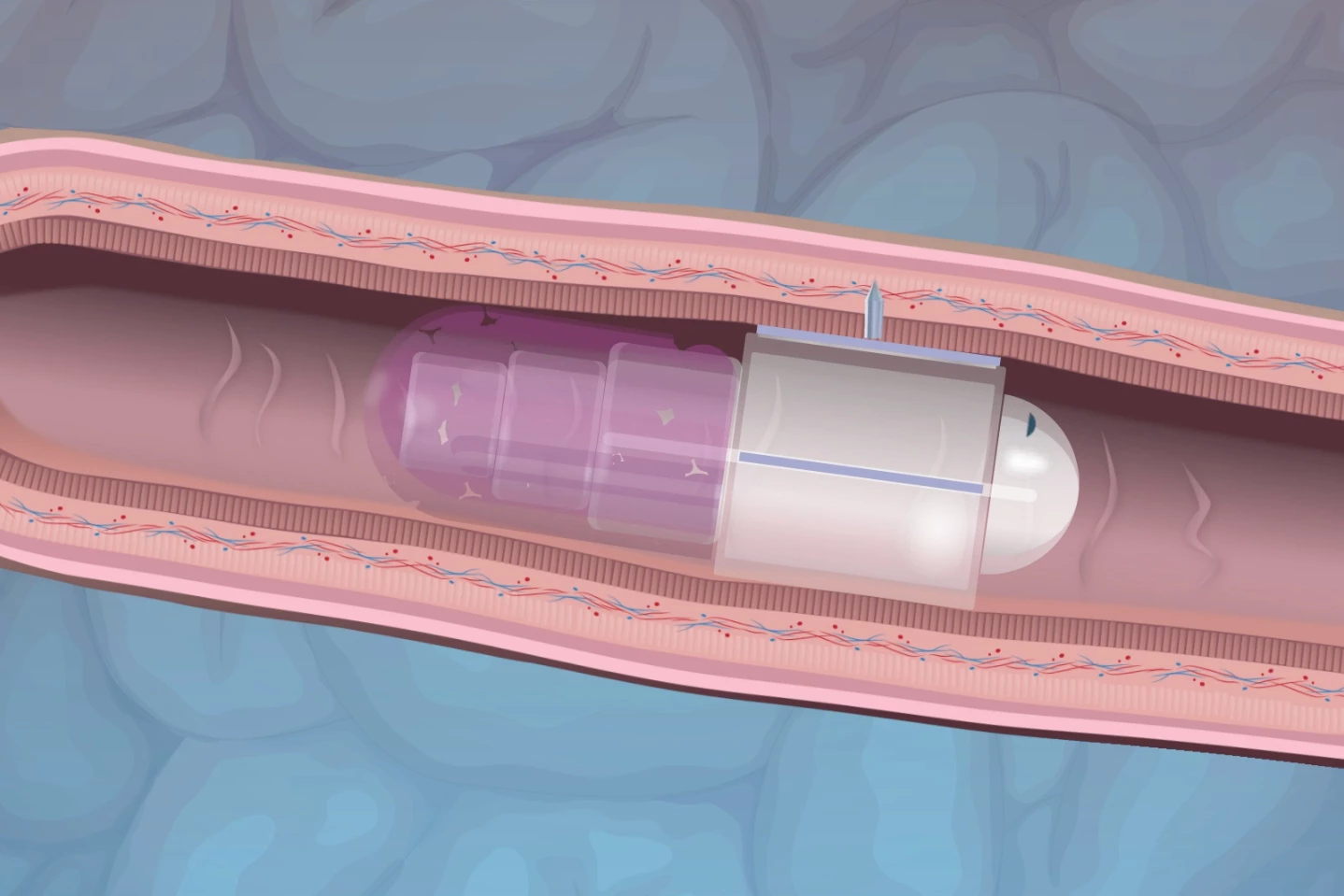Giving oneself daily injections of insulin or other drugs is both painful and a hassle. A new "robo-pill" may make doing so unnecessary, however – and it reportedly performed well in its first human trials.
Known as the RaniPill, the device is manufactured by San Jose, California-based Rani Therapeutics.
It actually takes the form of a capsule (not a pill) that contains a given biologically-sourced drug. Thanks to a protective enteric coating, that capsule passes through the patient's stomach intact, after being swallowed.
The RaniPill proceeds into the small intestine, where the higher pH levels cause its coating to dissolve. A chemical reaction then occurs inside the capsule, causing a tiny balloon within it to inflate. That balloon painlessly presses a microneedle – which contains the drug – into the highly-vascularized intestinal wall. As that needle harmlessly dissolves, it releases the medication directly into the bloodstream.
The remnants of the capsule are subsequently passed with the feces, within one to four days.

In a recent clinical study, the technology was used to orally deliver octreotide, which is a biologic drug commonly injected for the treatment of acromegaly and neuroendocrine tumors. The study was conducted in Australia, and involved 58 healthy volunteers of both sexes, aged 18 to 55. While 52 of the subjects were given the drug via RaniPills, a control group of six others received an identical dose intravenously.
Injecting medication straight into a vein is always going to be the most effective approach, typically resulting in 100 percent of the dose entering the circulatory system. That said, it was found that over 70 percent of each oral dose entered the systems of the RaniPill group. That figure is promising, and it could rise significantly as the system is developed further. No serious side effects were reported.
"We have demonstrated that we can safely and effectively deliver biologic drugs orally using the RaniPill platform, and we are now one step closer to making recurring injections for chronic diseases a thing of the past," says Rani Therapeutics' Chairman and CEO, Mir Imran.
More clinical studies, involving other medications, are expected to take place later this year.
Source: Rani Therapeutics




